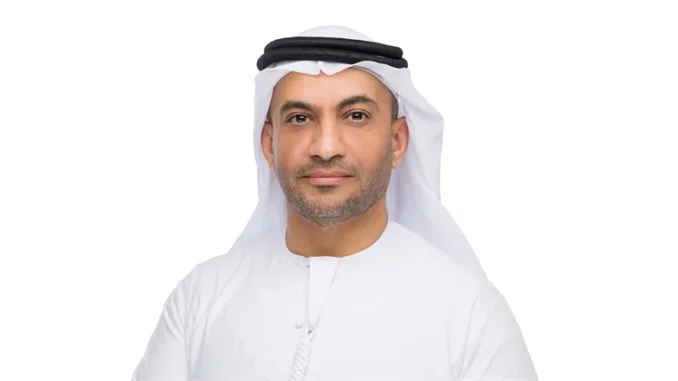An unprecedented political and parliamentary scandal undermines the credibility of the entire European parliamentary establishment. Op-ed.
 <
<
Dr. Salem Al KetbiCourtesy
The European Parliament, one of the most influential institutions of the Union, has recently suffered a major blow, the most serious crisis the Parliament has experienced since its creation. The Parliament’s deputy president was accused of corruption and graft.
She was overwhelmingly and quickly dismissed, without waiting for the final results of the investigation, because a large amount of cash was found in her personal possession or in the possession of a person close to her (allegedly her father). Eva Kaili, Vice President of the European Parliament, belongs to the Panhellenic Socialist Movement (PASOK) in Greece.
The former TV presenter, who was elected in January 2022, visited Qatar last November and praised the country’s reforms in labor conditions, which have been heavily criticized by many Western institutions and civil society organizations.
This unprecedented political and parliamentary scandal undermines the credibility of the entire European parliamentary establishment.
It undermines the effectiveness of the role it has defined for itself in recent years and decades. The European Parliament has appointed itself the “moral arbiter” and advocate of human rights over the human rights practices of all countries in the world.
Observers and experts know that the European Parliament’s reports on human rights practices in many countries contain sharp criticisms that sometimes lead to tensions between countries and the EU as a collective bloc, especially with regard to collective agreements on free trade cooperation.
Some consider the European Parliament’s reaction to the bribery scandal positive, as the Vice President was immediately suspended. However, there are other views that institutional gaps in the Parliament are the driving force behind such catastrophic violations, the negative consequences of which are not limited to the parliamentary side but affect all European institutions.
The extraordinary crisis of confidence was reflected in the statements of European Commission officials, some of whom traveled to Qatar (whose name is also associated with rumors of a bribery case and which officially denies it) to attend World Cup matches. Observation of the reactions of Europeans suggests that there is real shock in European parliamentary and political circles.
The European Parliament is a special case within the bloc. It is seen by many as a symbol of transparency and integrity, and today plays an important role in fighting corruption and protecting human rights around the world. As a result, there has been a sharp reaction to what has been described as the worst corruption scandal in the history of the European Parliament.
It contributes to the disclosure of the files of lobbyists associated with the European Parliament. These are groups that represent the interests of countries and trade and economic sectors of all countries in the world, not just the Gulf States. However, they operate within the relative transparency of their affairs, which would not normally include MEPs themselves, let alone its VP.
European or other legislators have been known to join parliamentary friendship groups with their counterparts in the parliaments of other countries. One assumes that one of the purposes of these formal groups is to protect the common collective interests of both sides of the relationship.
However, this works without their members being personally or individually involved in raising funds or bribes to facilitate certain procedures or legislation in favor of the other party. There are also links between parliamentarians and many departments, groups, and organizational associations, some of which work for the interests of other countries.
All this depends on the degree of transparency, disclosure and declared actions without being involved in covert affairs that violate the laws in force in the European Parliament or even in the host country, Belgium. A question arises here: why is any country trying to influence the direction or decisions of European parliamentarians?
The Parliament is the only elected body among the institutions of the EU. It now enjoys a high level of credibility in European societies and internationally. At the executive level, it submits its recommendations on various policies and decisions to the Council of the EU and the European External Action Service, the institution most closely associated with human rights.
Although the Parliament has no formal influence on the Commission, which determines the Union’s foreign policy, the European Parliament has a significant moral influence on European decisions, policies and orientations, as it represents the European Communities; the European Parliament issues an annual report on the state of human rights and democracy in the world.
These reports are not formalized. But they are an important component that shapes and influences the stereotype of states and their foreign relations, negatively and positively. The dilemma for the European side here is mainly moral, because with this scandal the EU loses its supposed moral and ethical responsibility to protect democracy and human rights.
Furthermore, it loses the means of pressure or the power to directly and indirectly induce countries to adapt to corresponding European or Western standards. After this scandal, it was difficult for the Parliament or the EU to put pressure on countries. This hurt European officials the most.
The crisis erupted at a time when the EU is suffering from a crisis of confidence due to divisions and disagreements, Europe’s flagging role in the world in the face of China’s rise, and the Russian challenge, which Europeans see as the biggest threat to the future of a united Europe.
Dr. Salem AlKetbi is a UAE political analyst living in Dubai.



Leave a Reply
You must be logged in to post a comment.